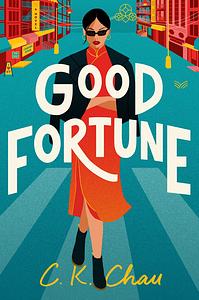Take a photo of a barcode or cover
funny
lighthearted
medium-paced
Strong character development:
Complicated
Loveable characters:
Complicated
Diverse cast of characters:
Yes
Let's get the obvious out of the way first, 99% of Austen romances get one star from me. So this rating reflects excellence.
The good: deeply grounded in time and place (freedom fries...I'm going to kms), extremely well thought out characterization of Elizabeth's social circle and indeed Elizabeth herself. Darcy is a hottie with a body as he should be. The writing is fun and genuinely very good.
The complaint with no grounding: To me Caroline is a lesbian...anyway,
The complaint with grounding: Really there are two. Firstly, I would have liked to see an editor tease at the threads of this narrative a little more. Transitions tend to be a little abrupt; sometimes the narrative strains to move from one P&P-dictated scene to another. We don't quite feel Jane/Bingley (Brendan, here) or Elizabeth/Darcy the way we do in the original, and part of that is because scenes often peter out or end abruptly with a pat, slightly out of place observation. This is more noticeable because scenes often open with a theatrical, voicey flare. The author's clearly having fun with it; if only any editor were having fun, in life, but particularly at work.
Secondly, I'm not quite sold on the fairly explicit transposition of marriage prospects to employment prospects. The first concern is structural: marriage and romantic attachments are obviously still things the novel concerns itself with, but they aren't the central concerns of the female leads, because they're 21st-century Chinese-American women for whom marriage is not the only or primary means of securing their family's future. This difference means the novel has two social spheres to content with, personal and professional, and balancing the two means the novel sometimes falters in its observational humor or pacing. We know Elizabeth doesn't want to get some random job doing lucrative garbage, and her values with regards to employment, commercialism, and community are central to her conflict with Darcy. But she also gets and loses a job in this book, an experience that is reduced to a sketched-out aside in the back third. A huge portion of the original P&P's narrative drive is due to the genuinely, for their class, dire straits the Bennets find themselves in. Here, Elizabeth's failure to find a job is simultaneously urgent and secondary to her encounters with Darcy. The end result is a bit muddled; Elizabeth's convictions aren't quite as clear or deep as they need to be, her reasons for disliking Darcy a little less well-formed. When Elizabeth and Darcy clash in the original P&P, their animus is so sharply defined because they are clashing over questions central to the novel's premise: their shared and separate social spheres, the obligations they hold to others of their class and below it, their views on marriage, the other sex, each others' families, etc. It is a testament to the author's skill that many of these conflicts are still very clear, but still, when you have Charlotte's "marriage" transposed into accepting an offer of employment, the reader is left with a sense of impermanence and lower stakes that directly conflicts with the novel's attempts to ground itself in a similar register as Austen's original.
The other issue is more practical. When Elizabeth and Darcy are fighting, the conflicts are pretty high-level. Community vs commerce, local non-profit do-gooding vs global capitalism. OK. The problem is this: sexy as do-gooding female lead/evil-oh-wait-maybe-not capitalist might be, the conflict isn't quite as intimate as it needs to be to work within the beats of the original. Darcy's objections to Elizabeth's family and origins are preserved here, but Elizabeth's objections to Darcy are a mix of dislike of his family/economic status (roughly in line with the original book) and his plans for her local community, plus a general ideological objection to his wealth and work. The community center is very important and very grounded as a setting...in the beginning. For the bulk of the novel's middle, though, it fades into the background or is mentioned as cliche. The book suffers for this: if a large part of Elizabeth's character is meant to be concern with the social fabric of her community, Chinatown changing through gentrification, and this community center specifically, then it should be a near-intrusive presence, the same way the Bennet sisters' need to marry in the context of English class and community is inescapable in the original, even when not explicitly foregrounded. We get a beautiful rendering of the complex web of obligations and expectations, spoken and unspoken, within Elizabeth and Darcy's overlapping social circles. In this sense the novel meets the original. But when it comes to Elizabeth and Darcy's interactions, consistency is ruptured by the need to juggle a few too many concerns: the community center and their conflicting wishes for it, their feelings for (and against) one another, Elizabeth's photography and job search. Modernity imposes, and the end result is a little less tight than it should be.
Overall: will reread, glad I spent my money on it, thank u to the few people left in publishing who actually care about making something engaging to read.
The good: deeply grounded in time and place (freedom fries...I'm going to kms), extremely well thought out characterization of Elizabeth's social circle and indeed Elizabeth herself. Darcy is a hottie with a body as he should be. The writing is fun and genuinely very good.
The complaint with no grounding: To me Caroline is a lesbian...anyway,
The complaint with grounding: Really there are two. Firstly, I would have liked to see an editor tease at the threads of this narrative a little more. Transitions tend to be a little abrupt; sometimes the narrative strains to move from one P&P-dictated scene to another. We don't quite feel Jane/Bingley (Brendan, here) or Elizabeth/Darcy the way we do in the original, and part of that is because scenes often peter out or end abruptly with a pat, slightly out of place observation. This is more noticeable because scenes often open with a theatrical, voicey flare. The author's clearly having fun with it; if only any editor were having fun, in life, but particularly at work.
Secondly, I'm not quite sold on the fairly explicit transposition of marriage prospects to employment prospects. The first concern is structural: marriage and romantic attachments are obviously still things the novel concerns itself with, but they aren't the central concerns of the female leads, because they're 21st-century Chinese-American women for whom marriage is not the only or primary means of securing their family's future. This difference means the novel has two social spheres to content with, personal and professional, and balancing the two means the novel sometimes falters in its observational humor or pacing. We know Elizabeth doesn't want to get some random job doing lucrative garbage, and her values with regards to employment, commercialism, and community are central to her conflict with Darcy. But she also gets and loses a job in this book, an experience that is reduced to a sketched-out aside in the back third. A huge portion of the original P&P's narrative drive is due to the genuinely, for their class, dire straits the Bennets find themselves in. Here, Elizabeth's failure to find a job is simultaneously urgent and secondary to her encounters with Darcy. The end result is a bit muddled; Elizabeth's convictions aren't quite as clear or deep as they need to be, her reasons for disliking Darcy a little less well-formed. When Elizabeth and Darcy clash in the original P&P, their animus is so sharply defined because they are clashing over questions central to the novel's premise: their shared and separate social spheres, the obligations they hold to others of their class and below it, their views on marriage, the other sex, each others' families, etc. It is a testament to the author's skill that many of these conflicts are still very clear, but still, when you have Charlotte's "marriage" transposed into accepting an offer of employment, the reader is left with a sense of impermanence and lower stakes that directly conflicts with the novel's attempts to ground itself in a similar register as Austen's original.
The other issue is more practical. When Elizabeth and Darcy are fighting, the conflicts are pretty high-level. Community vs commerce, local non-profit do-gooding vs global capitalism. OK. The problem is this: sexy as do-gooding female lead/evil-oh-wait-maybe-not capitalist might be, the conflict isn't quite as intimate as it needs to be to work within the beats of the original. Darcy's objections to Elizabeth's family and origins are preserved here, but Elizabeth's objections to Darcy are a mix of dislike of his family/economic status (roughly in line with the original book) and his plans for her local community, plus a general ideological objection to his wealth and work. The community center is very important and very grounded as a setting...in the beginning. For the bulk of the novel's middle, though, it fades into the background or is mentioned as cliche. The book suffers for this: if a large part of Elizabeth's character is meant to be concern with the social fabric of her community, Chinatown changing through gentrification, and this community center specifically, then it should be a near-intrusive presence, the same way the Bennet sisters' need to marry in the context of English class and community is inescapable in the original, even when not explicitly foregrounded. We get a beautiful rendering of the complex web of obligations and expectations, spoken and unspoken, within Elizabeth and Darcy's overlapping social circles. In this sense the novel meets the original. But when it comes to Elizabeth and Darcy's interactions, consistency is ruptured by the need to juggle a few too many concerns: the community center and their conflicting wishes for it, their feelings for (and against) one another, Elizabeth's photography and job search. Modernity imposes, and the end result is a little less tight than it should be.
Overall: will reread, glad I spent my money on it, thank u to the few people left in publishing who actually care about making something engaging to read.
emotional
funny
hopeful
informative
lighthearted
reflective
relaxing
sad
medium-paced
Plot or Character Driven:
Character
Strong character development:
Yes
Loveable characters:
No
Diverse cast of characters:
Yes
Flaws of characters a main focus:
Complicated
I really enjoyed it because of the cultural difference of the characters and the intersection of the differences creating conflicts.
reflective
fast-paced
Plot or Character Driven:
A mix
Strong character development:
Complicated
Loveable characters:
No
Diverse cast of characters:
Complicated
Flaws of characters a main focus:
Yes
As far as adaptions go, this was a wonderful adaptation of Pride & Prejudice. I love the take on the setting, culture and people. As always, I find Darcy infuriating (which is the point I know), but it does make me want to strangle some pillows. [2.5/5 for the P&P story. 4/5 rating is based on the wonderful worldbuilding and prose quality of the author]
emotional
funny
lighthearted
relaxing
medium-paced
Plot or Character Driven:
Character
Strong character development:
Yes
Loveable characters:
Complicated
Diverse cast of characters:
Yes
Flaws of characters a main focus:
Yes
emotional
funny
hopeful
tense
medium-paced
Plot or Character Driven:
A mix
Strong character development:
Yes
Loveable characters:
Complicated
Diverse cast of characters:
Yes
Flaws of characters a main focus:
Yes
Jane Austen remakes in modern Asian families is one of my sweet spots (see Sonali Dev's Pride, Prejudice & Other Flavors as well). Chau's version is the contrast between working class American-born Chinese and rich Hong Kong Chinese real estate developers.
Elizabeth Chen, or LB, graduated college but now is in endless job-search mode. Meanwhile she's still helping at the family restaurant and trying to rein in her wilder younger sisters, especially Lydia.
When her real estate mother sells the community rec center to Hong Kong rich Chinese, she is forced to rub elbows with elite folks who may not see the value of the community center other than in dollar signs.
The best part of an Austen remake is hitting all the familiar signposts, well loved phrases, particular scenes, but examining them from the new angle of the modern setting. This book does both marvelously. We've got all the necessary Austen beats down to LB's father washing his hands of Lydia when she gets the chance to go to the Jersey Shore, and Catherine coming to confront LB with pictures from a charity ball of her and Darcy and reminding her of her unsuitability.
Even the interim director (stand in for the Rector) who steals away LB's best friend Charlotte hits the Austen sweet spot.
Meanwhile, we get the tensions between immigrant and third culture rich kids, as well as some interesting tensions about second generation kids and the heavy expectations that lay upon them.
I would definitely follow this writer into more books.
Elizabeth Chen, or LB, graduated college but now is in endless job-search mode. Meanwhile she's still helping at the family restaurant and trying to rein in her wilder younger sisters, especially Lydia.
When her real estate mother sells the community rec center to Hong Kong rich Chinese, she is forced to rub elbows with elite folks who may not see the value of the community center other than in dollar signs.
The best part of an Austen remake is hitting all the familiar signposts, well loved phrases, particular scenes, but examining them from the new angle of the modern setting. This book does both marvelously. We've got all the necessary Austen beats down to LB's father washing his hands of Lydia when she gets the chance to go to the Jersey Shore, and Catherine coming to confront LB with pictures from a charity ball of her and Darcy and reminding her of her unsuitability.
Even the interim director (stand in for the Rector) who steals away LB's best friend Charlotte hits the Austen sweet spot.
Meanwhile, we get the tensions between immigrant and third culture rich kids, as well as some interesting tensions about second generation kids and the heavy expectations that lay upon them.
I would definitely follow this writer into more books.
funny
medium-paced
Plot or Character Driven:
Character
Strong character development:
Yes
Loveable characters:
Complicated
Diverse cast of characters:
Yes
Flaws of characters a main focus:
Yes
It was good…but tbh I probably should have just read pride and prejudice
medium-paced
Plot or Character Driven:
A mix
Strong character development:
Yes
Loveable characters:
Yes
Diverse cast of characters:
Yes
Flaws of characters a main focus:
Yes
A great Pride and Prejudice retelling! I really enjoyed seeing the characters motivations as they apply to a contemporary setting.
Took me a while to get into it, and there was a lot of descriptive imagery that I tended to skip over. Towards the end I was excited to see how things played out.




